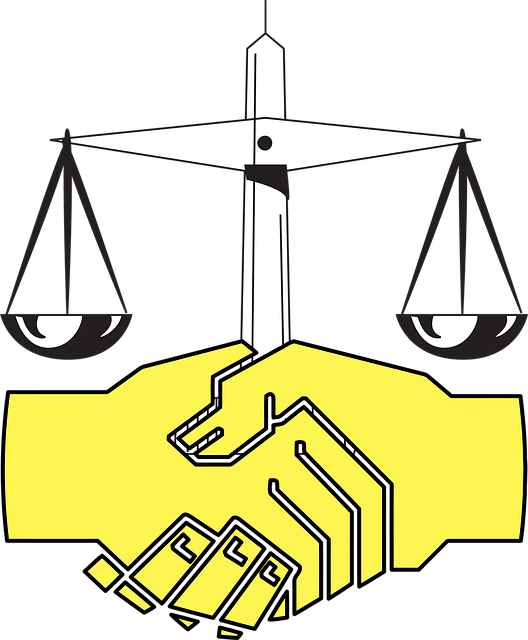Finance crime probes rely on advanced analytics and civil litigation to expose fraud, embezzlement, and money laundering, protecting consumers and economies. Understanding consumer rights in civil litigation empowers individuals to challenge corporate misconduct, secure damages, and hold culprits accountable, bolstering financial integrity and building trust.
In the intricate world of finance, navigating potential crimes requires a keen eye and robust legal framework. “Finance Crime Probes” delves into the critical aspect of uncovering wrongdoings, focusing on consumer protection. This article explores how civil litigation serves as a powerful tool to safeguard rights. We break down the process, emphasizing the importance of knowledge for consumers. By understanding their legal protections under civil litigation, folks can empower themselves, ensuring justice and redress in today’s financial landscape.
- Finance Crime Probes: Uncovering Wrongdoings
- Consumer Rights: Legal Protections
- Civil Litigation Process Explained
- Empowering Consumers Through Knowledge
Finance Crime Probes: Uncovering Wrongdoings

Finance crime probes are a critical aspect of uncovering wrongdoings within financial institutions and protecting consumers. These investigations delve into complex web of illegal activities, such as fraud, embezzlement, and money laundering, that can have devastating impacts on individuals and the broader economy. By employing sophisticated analytical tools and legal strategies, investigators aim to expose perpetrators and ensure justice is served. Understanding consumer rights in civil litigation plays a pivotal role in these probes, empowering victims to seek compensation and hold culpable parties accountable.
Through meticulous examination of financial records, witness testimonies, and regulatory compliance data, finance crime probes unravel the intricate schemes designed to exploit consumers. The insights gleaned from these investigations not only lead to winning challenging defense verdicts but also foster a stronger sense of security within the philanthropic and political communities. By holding financial institutions and individuals accountable for their actions, these probes contribute to maintaining the integrity of the global financial system.
Consumer Rights: Legal Protections

Understanding Consumer Rights in Civil Litigation plays a pivotal role in navigating high-stakes cases, especially when involving complex financial transactions. Consumers are protected by a robust legal framework designed to safeguard their rights and ensure fairness. These protections are crucial, as they empower individuals to stand against corporate misconduct and seek justice in both the business and philanthropic and political communities.
By understanding their consumer rights, individuals can better avoid potential pitfalls that might lead to indictment. Legal provisions offer a range of remedies, from monetary compensation for financial losses to injunctive relief to prevent further harm. This comprehensive approach ensures consumers are not only compensated but also protected against future violations, fostering a more transparent and accountable business environment.
Civil Litigation Process Explained

When it comes to understanding consumer rights in civil litigation related to finance crime probes, the process can seem complex. However, it’s crucial for individuals to grasp their legal standing. Civil litigation involves a private dispute between two or more parties, distinct from criminal proceedings initiated by the state. In the context of financial crimes, consumers may find themselves involved through fraudulent practices, misrepresented products, or unfair business conduct.
The civil litigation process offers an avenue for redress, enabling consumers to seek compensation and justice. It begins with filing a complaint at the appropriate court, outlining the allegations and seeking specific relief. Defendants are then served with the complaint, prompting a response. Through discovery processes like depositions and document production, both parties gather evidence. This exchange is pivotal as it reveals the strengths and weaknesses of each side’s case. The goal for consumers isn’t merely to win challenging defense verdicts but to achieve extraordinary results by securing rightful damages, restitution, and justice for their experiences with general criminal defense strategies at play.
Empowering Consumers Through Knowledge

Empowering consumers with knowledge about their rights is a key aspect of modern finance crime probes. Understanding consumer rights in civil litigation equips individuals to navigate complex legal processes and hold financial institutions accountable for any misconduct. By educating themselves on regulations such as anti-money laundering laws, investors can recognize suspicious activities and report them without fear of retaliation. This proactive approach not only safeguards personal finances but also contributes to an unprecedented track record of justice for his clients.
Knowing their rights enables consumers to demand transparency from financial institutions and expect complete dismissal of all charges when these entities breach legal protocols. Armed with this knowledge, folks can actively participate in maintaining a fair financial landscape, fostering trust in systems designed to protect them.
In exploring finance crime probes and their implications, we’ve delved into crucial aspects like uncovering wrongdoings and understanding consumer rights in civil litigation. By examining these topics, consumers can better navigate legal protections and empower themselves through knowledge. This enhanced awareness is a powerful tool against financial injustices, enabling individuals to protect their rights and seek resolution when necessary.






